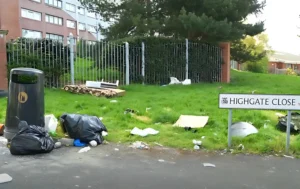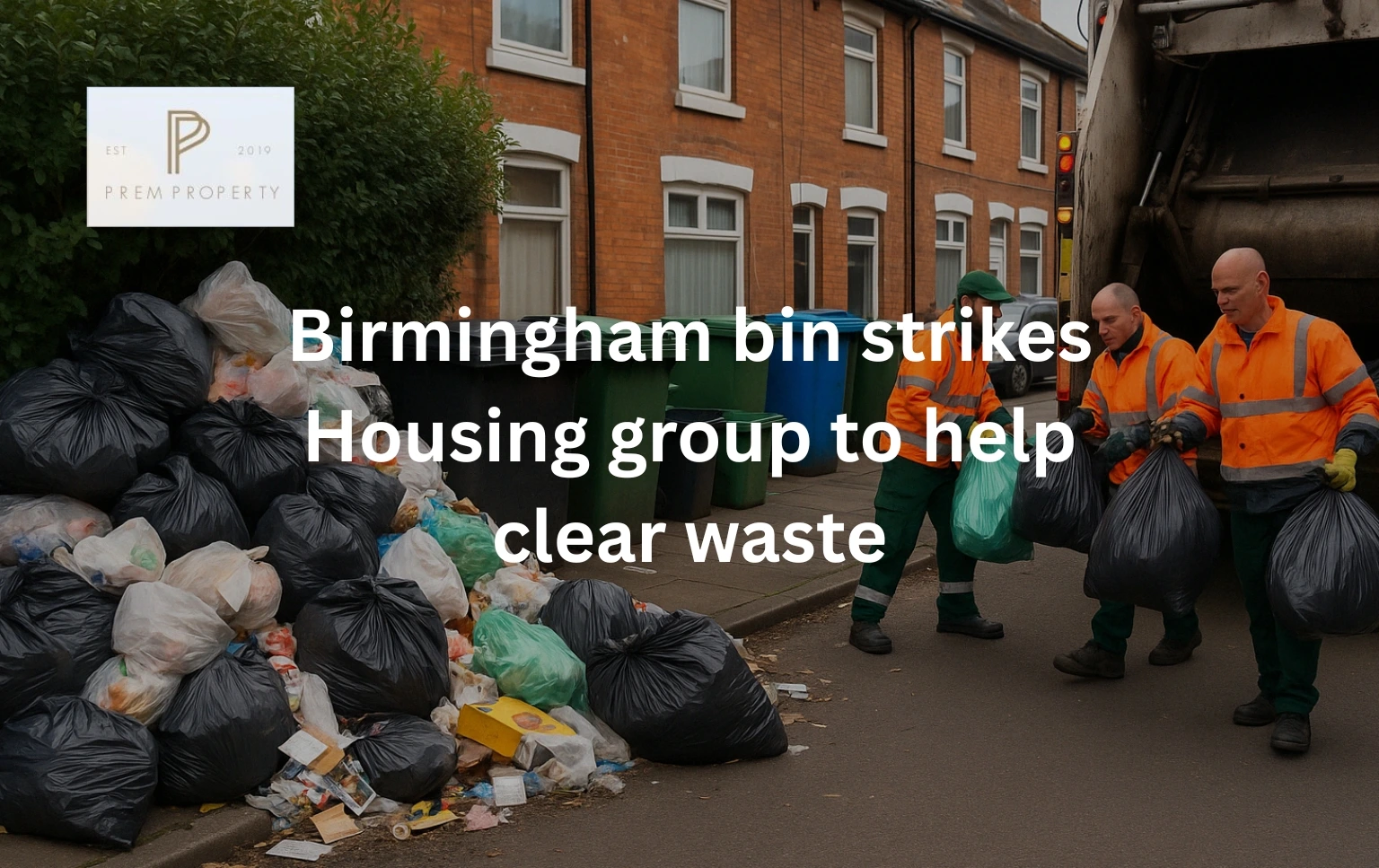As the Birmingham bin strikes continue to disrupt daily life, residents across the city are facing mounting piles of uncollected rubbish. While the industrial action has caused frustration for thousands, a glimmer of hope has emerged as Platform Housing Group, a respected West Midlands-based organisation, has stepped in to offer tangible support.
Birmingham Bin Strikes Cause Health and Environmental Concerns
The ongoing bin strikes, triggered by a dispute between Birmingham City Council and Unite the Union, have left entire communities without regular waste collection. Refuse has been accumulating on street corners, in alleyways and even outside homes—posing a significant health risk and creating an eyesore in residential areas.
Residents in places such as Small Heath, Kings Heath and Ladywood have reported overflowing bins, bad odours, and concerns about rodent infestations. As negotiations stall, the city’s most affected neighbourhoods are left to cope with the consequences. Understandably, many feel abandoned.

Platform Housing Group Offers a Lifeline to Communities
In response to the growing waste crisis, the Solihull-based Platform Housing Group has mobilised its workforce to assist with the clean-up operation. Over 30 members of its Estates team volunteered to remove excess rubbish from areas hardest hit by the strikes. Backed by a fleet of 14 vehicles—including tippers, trailers and flatbeds—the team began clearing refuse from a broad range of Birmingham postcodes.
This act of solidarity has not only helped ease the rubbish build-up but has also brought some much-needed relief to residents who had begun to lose hope.
Birmingham Bin Strikes: Volunteers Show Community Spirit in Action
On 16 April, volunteers from Platform Housing arrived in neighbourhoods such as Sutton Coldfield, Northfield, and Bournville armed with equipment and determination. The team, which included both operational and planning staff, worked side by side to improve the state of local streets.
This effort speaks volumes about the organisation’s commitment to the wider community—not just through housing, but through meaningful civic action. The initiative received praise from residents and local leaders alike, who were grateful to see proactive steps taken in the face of bureaucratic delays.

Which Areas Were Helped by Platform’s Clean-Up Operation?
The housing group focused their clean-up operation across multiple Birmingham and fringe postcode areas, including:
- B10 – Small Heath
- B13 – Moseley and parts of Kings Heath
- B14 – Kings Heath and Yardley Wood
- B16 – Edgbaston and Ladywood
- B18 – Hockley and the Jewellery Quarter
- B27 – Acocks Green
- B30 – Stirchley, Cotteridge, and Bournville
- B31 – Northfield, West Heath, and Longbridge
- B32 – Quinton and Woodgate Valley
- B33 – Stechford, Tile Cross, and Kitts Green
- B36 – Castle Bromwich and Smith’s Wood
- B44 – Kingstanding and Perry Common
- B45 – Rubery and Rednal
- B73 – Boldmere and parts of New Oscott in Sutton Coldfield
The effort made a real impact, especially in neighbourhoods where waste had been left uncollected for weeks. Piles of black bags and scattered rubbish were removed, leaving streets cleaner and safer.
Strong Leadership Amid the Birmingham Bin Strikes
Nicola Chamberlain, Head of Estates at Platform Housing Group, expressed her thoughts on the clean-up:
“We understand how frustrating the current disruption has been for many people across Birmingham. Our colleagues were proud to do what they could to support our local communities and help improve the environment in some of the hardest hit areas.”
This response highlights the importance of businesses and non-profits stepping in when public services fall short. It also reinforces Platform Housing’s reputation as a community-first organisation, committed to supporting its tenants and neighbouring areas.
Birmingham Bin Strikes Highlight Need for Long-Term Solutions
While the contribution from Platform Housing Group is commendable, it is clear that a longer-term solution is urgently needed. Temporary clean-ups, however effective, do not resolve the core issues. The root of the problem—ongoing industrial action and breakdowns in communication between the council and union—needs to be addressed.
Talks are expected to resume later this week, but many remain sceptical. Until a formal agreement is reached, the risk of further disruption looms over Birmingham’s waste collection system.
Residents Express Gratitude and Frustration
Local residents in the affected postcodes have expressed mixed emotions. On one hand, they are grateful for the volunteers’ efforts, and on the other, they feel increasingly frustrated with the city’s leadership.
Many questioned why a housing group was left to do the work of the council, suggesting a lack of preparedness and coordination from those in charge. Others voiced concerns over the growing burden placed on local volunteers and third-party organisations to fill in the gaps left by striking workers.

Birmingham Bin Strikes: A Wake-Up Call for City Services
The Birmingham bin strikes have served as a wake-up call for residents and decision-makers alike. The strikes have shown how quickly basic services can collapse under pressure and how much we rely on these seemingly mundane systems.
They’ve also sparked wider discussions around workers’ rights, council funding and the importance of community-driven solutions. While the situation remains far from ideal, it has opened up conversations about what more can be done to support vulnerable communities during crises.
Community Action Is More Than Just Rubbish Collection
Platform Housing Group’s efforts went beyond removing bags of waste. They restored dignity to residents who had been living in unsanitary conditions and reminded the public of the power of unity and empathy. Their action showed that when organisations align their values with service, real change is possible—even in the midst of a crisis.
Their work also emphasised how businesses, housing associations, and volunteers can collaborate effectively to solve urgent local problems, especially when government support is slow or insufficient.
Final Thoughts: What Comes Next?
As Birmingham awaits a resolution to the strikes, it’s clear that the involvement of community-focused groups like Platform Housing makes a significant difference. Their swift response, backed by manpower and a sense of responsibility, helped mitigate what could have been a more severe health and environmental issue.
However, unless council officials and unions can reach a sustainable agreement soon, the city may once again find itself in a similar position. For now, residents can take solace in knowing that while political talks continue behind closed doors, their communities are not being ignored entirely.
The situation may be ongoing, but thanks to efforts like this, Birmingham’s people have one less pile of rubbish to worry about.

